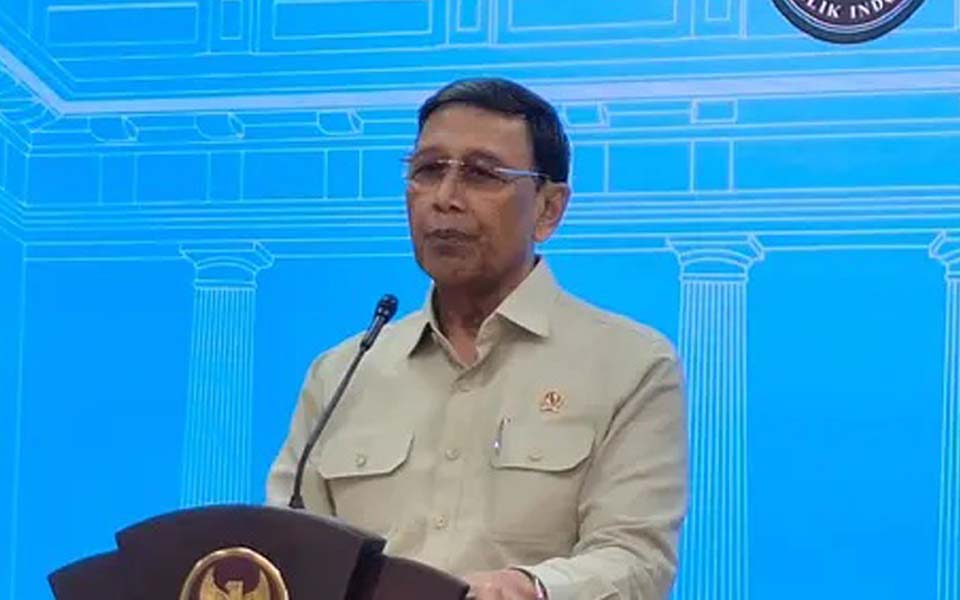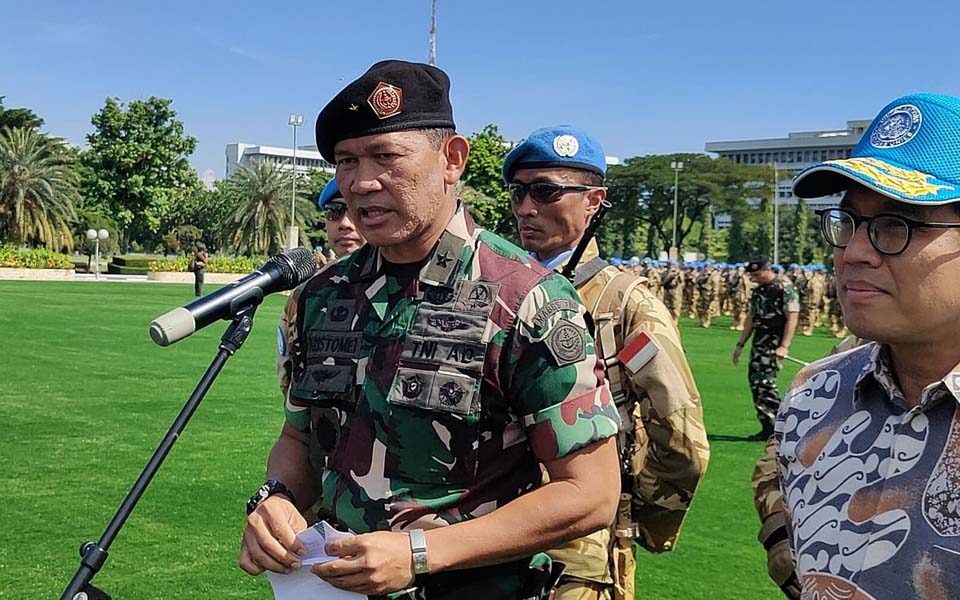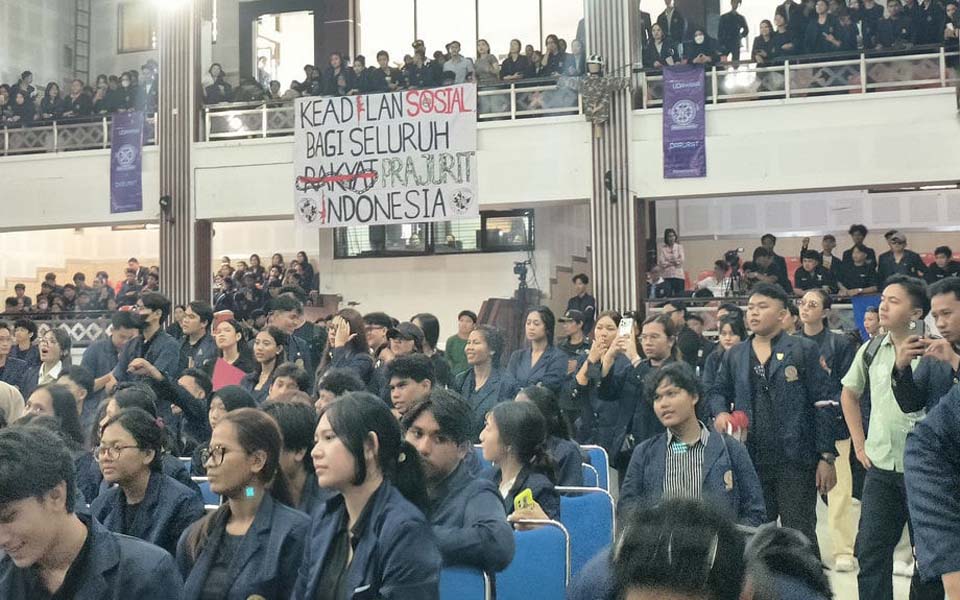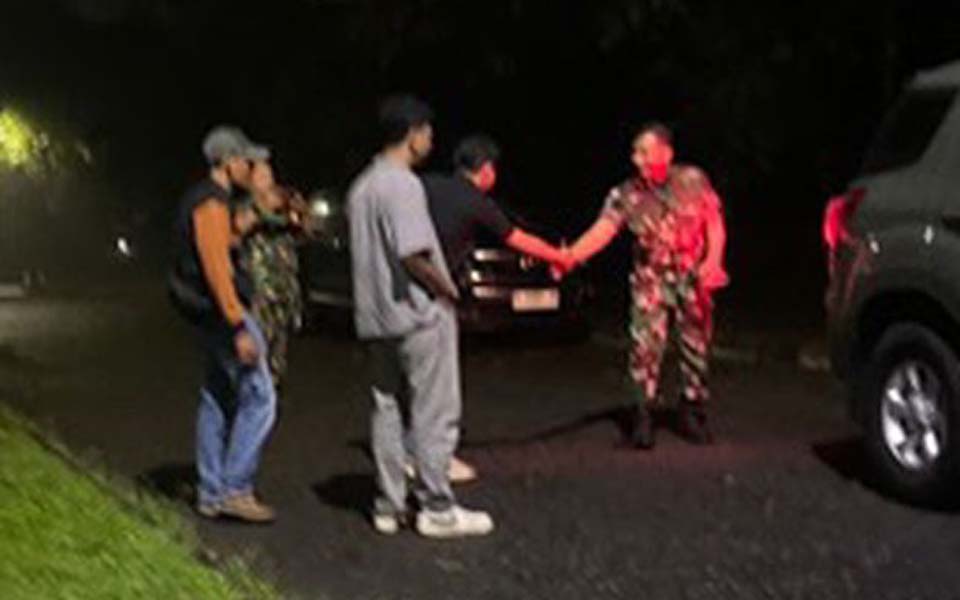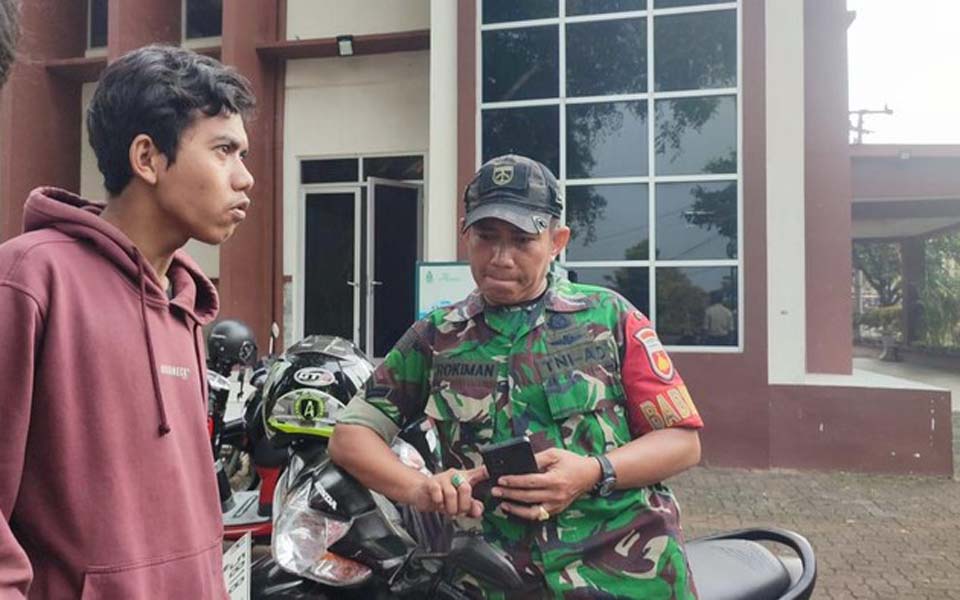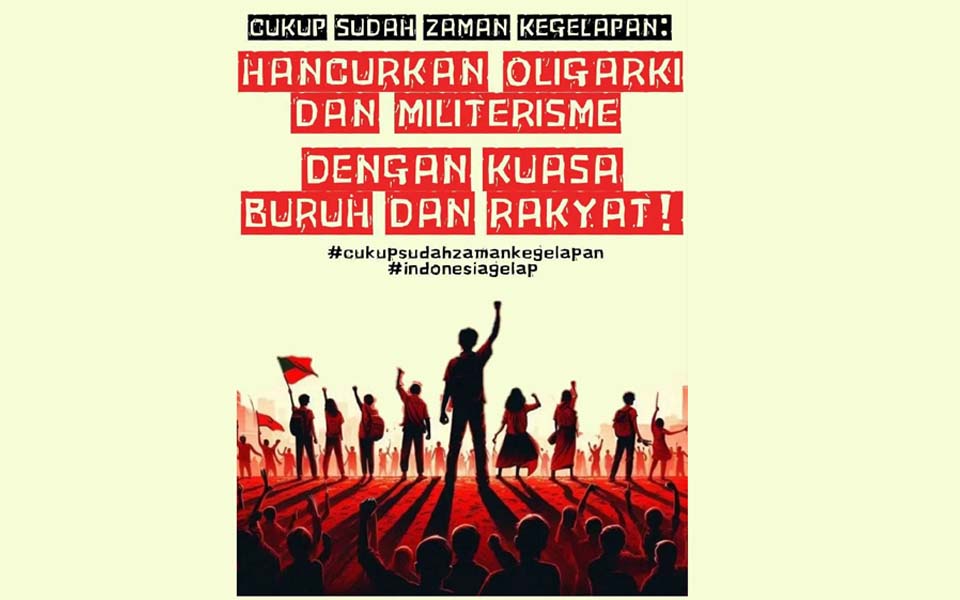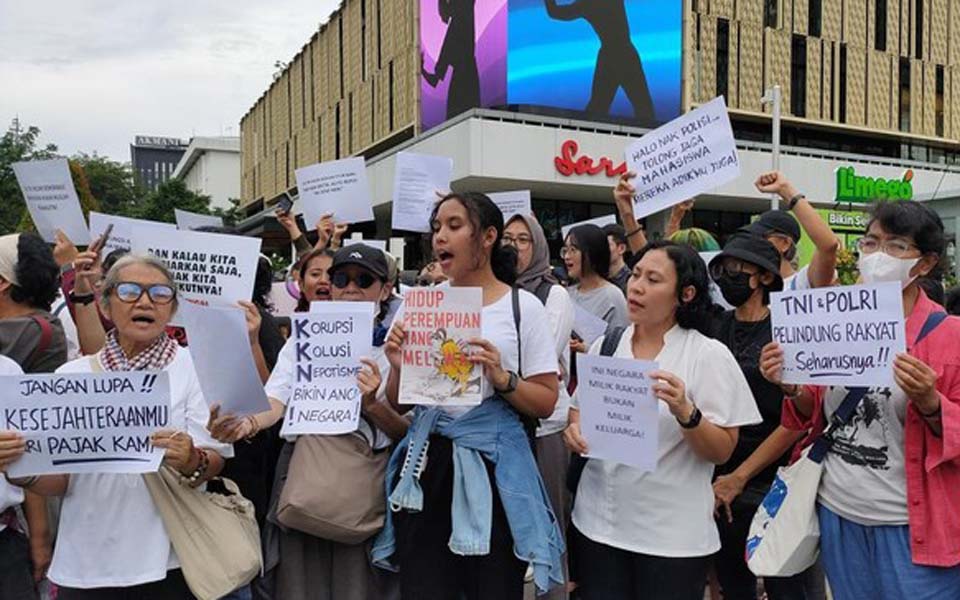Fabian Januarius Kuwado, Jakarta – Presidential chief-of-staff Moeldoko has mooted an increasing in the number of non-commissioned officers (Babinsa) and police (Babinkamtibmas) assigned to villages in Indonesia.
According to the former TNI (Indonesian military) chief, the current number of Babinsa and Babinkamtibmas is still inadequate.
“In fact [only] one (Babinsa/Babinkamtibmas) can be (responsible) for five villages. I don’t think that all villages have a Babinkamtibmas. That’s the problem, yes”, said Moeldoko at his office in the Bina Graha Building at the Palace complex in Jakarta on Wednesday February 14.
This is not to mention the geographic condition of villages, particularly isolated villages, which are extremely difficult to access where transportation is limited.
If the numbers are increased, Moeldoko is convinced that it will strengthen the role of Babinsa and Babinkamtibmas that are already deployed.
Moeldoko noted that the Babinsa and Babinkamtibmas are the state’s advance guard in maintaining stability, security and public order. It is the Babinsa and Babinkamtibmas who are the first on the scene field when there are problems in the community.
“They are the state’s representatives on the front line, so the Babinkamtibmas and Babinsa can follow everything that happens at the community level, proper surveillance minute by minute, day by day”, said Moeldoko.
“If something happens, it is the Babinkamtibmas and Babinsa who respond [first]. This role is actually very important in context of the state [security] structure”, he continued.
Notes
Babinsa or Bintara Pembina Desa, are non-commissioned military officers posted in villages and wards and affiliated with the civilian administration. Babinkamtibmas or Badan Pembinaan Keamanan Dan Ketertiban Masyarakat, are village-assigned police officers who act as advisers on security and public order. The Babinsa in particular provide a community level presence for the TNI’s territorial command structure which mandates the deployment of military command posts and detachments at all levels of the civil administration: provincial, district, sub-district and village. This structure provides the organisational framework for the TNI to act as a political security force at all levels of society.
[Translated by James Balowski. The original title of the article was Moeldoko Wacanakan Penambahan Jumlah Babinsa dan Babinkamtibmas.]






